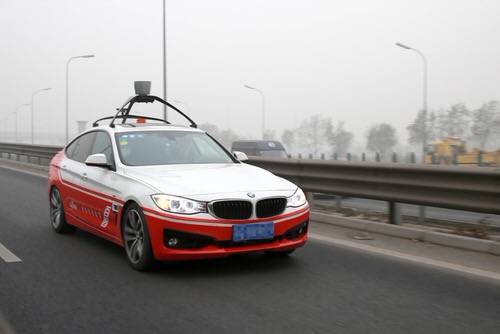Chinese search giant Baidu announced on Wednesday that it has open sourced its self-driving technology, through a new project named Apollo.
Automakers will be able to look at reference designs for self-driving sensors and use Baidu’s software, which includes a cloud data service to transmit 3D maps and traffic updates to the car.
See Also: Hackers tried to steal Chinese search giant’s autonomous trade secrets
The announcement a few months after Baidu ended a self-driving partnership with BMW, who then went on to partner with Intel and Mobileye.
Baidu has not said how it plans to finance the open source platform, but the addition of a cloud service sounds like one way. Automakers might also be forced to use Baidu as the default search engine, similar to how all Android manufacturers are forced to pre-install Google services.
Automakers will be able to download the platform come July, but it will only be for “restricted environment” driving. At the end of the year, the platform will open to self-driving programs on public roads.
Baidu is aiming for self-driving cars on public roads by 2020. It has been working on the technology for two years now.
“An open, innovative industry ecosystem initiated by Baidu will accelerate the development of autonomous driving in the US and other developed automotive markets,” said Baidu CEO, Qi Lu.
The move takes aim at Google, which has always made its services free to the public and operators. It may force the U.S. search giant to respond, especially if Google wants any chance of succeeding with the tech in China.
Google’s self-driving division, Waymo, has not said how it plans to commercialize its technology.


















